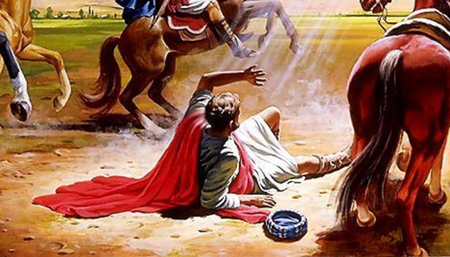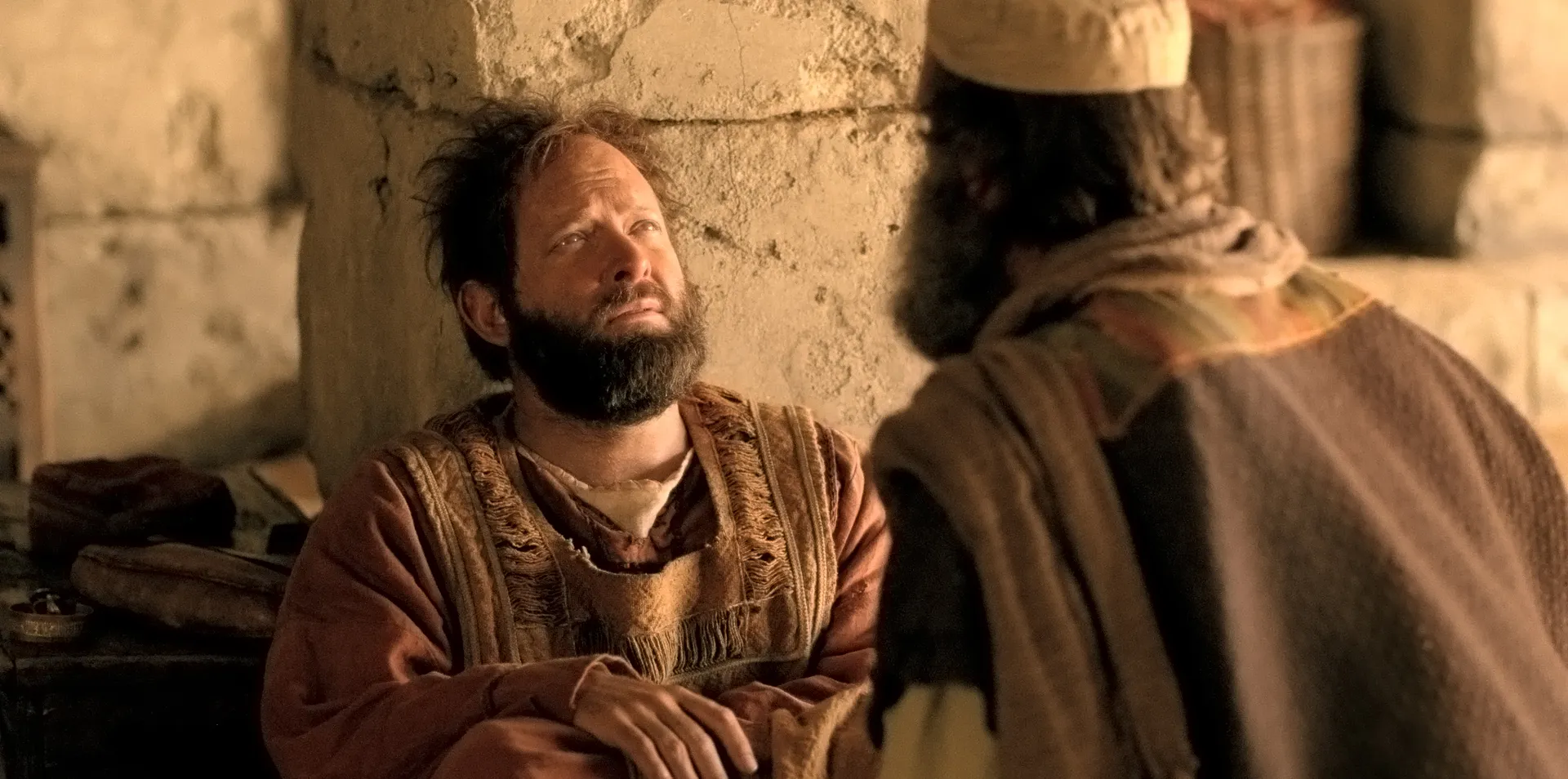What does it mean to “respond to our calling”? What is a “calling”? Is responding to our calling the same as living out our God-given purpose?
Acts 9:1-6, (7-20) tells the story of Saul’s life-changing encounter on the road to Damascus. Saul, still “breathing threats and murder” against Jesus’ disciples, had obtained permission from the high priest to hunt down followers of “the Way” and drag them back to Jerusalem. But as he neared Damascus, a light from heaven flashed around him. He fell to the ground and heard a voice: “Saul, Saul, why do you persecute me?”
This wasn’t just a moment of shock. Saul wasn’t just rerouted. It was a moment of complete disruption.

A Voluntary Surrender
Saul, struck blind, fasted for three days. He didn’t eat or drink. He couldn’t see. His entire world stopped. And in that silence, he waited. No longer in control. No longer the one giving orders. He waited on God.
That detail always gets me. Saul chose to fast. He chose to sit in prayer. Even though he couldn’t see, even though he didn’t yet understand what was happening, he surrendered. Something in him knew this was not a moment to rush.
Chosen While Still Opposing
Another line that stands out is when Jesus tells Ananias, “Go, for he is an instrument whom I have chosen. Saul was chosen for a purpose before he ever exhibited any evidence of being the person to carry out that purpose. He was behaving in the exact opposite manner of the purpose for which he was chosen. He wasn’t just a passive bystander; he was a passionate persecutor of Christians. And yet, Jesus saw his potential. He was chosen not for who he was but for who he would become!
That really shifts how I think about calling. Sometimes the very thing that made us run hard in the wrong direction is what equips us to run harder in the right one. Saul saw Stephen die (Acts 7:54-60). He was likely there to ensure the stoning followed legal procedure. In doing so, he couldn’t unsee the faith, courage, and peace in the faces of the people he hurt. I believe that stuck with him. And… it is what inspired him.
Suffering with Purpose
When Jesus says, “I will show him how much he must suffer for the sake of my name,” I don’t think it’s punishment or divine payback. I don’t think Jesus was mad. I think Jesus knew Saul would suffer willingly—desperately even—to know the peace and power he’d once tried to crush. He had seen something in those Christians he couldn’t deny, and he wanted it for himself. He even says in Philippians 3:10 that he wanted to know and share in Christ’s sufferings.
None of Saul’s credentials could give him what they had. But Jesus could.
Who Was Ananias?
Now we come to Ananias. We know very little about him. He lived in Damascus. He was devout and respected among the Jews (Acts 22:12). That’s about it. He wasn’t a prominent leader. Other than this story, we never hear of him again.
And yet, Jesus chooses him. Not Peter. Not James. Not a seasoned apostle. Just Ananias.
Jesus speaks to him clearly and gives very specific instructions. Ananias, understandably, hesitates. He reminds Jesus who Saul is, as if Jesus needed to be enlightened. It’s a very human moment. Still, Jesus just says, “Go.”
The Power of One Yes

That raises questions. Was Ananias chosen for a reason? Was he uniquely prepared? Was this moment orchestrated, or just convenient? Why did Jesus wait until this particular journey to stop Saul?
What if Ananias had been praying for Saul to be stopped—even to die? Or what if, in quiet compassion, he had been praying for Saul to see the truth? What if Ananias needed this moment just as much as Saul did?
Maybe Jesus chose him because he needed to be brave. Maybe this was his moment to overcome fear. Maybe this was the one act of courage that changed everything.
It makes me wonder: how many times have I ignored an opportunity to step out in faith because I was afraid? What might have changed in my life? What healing or transformation did I pass up because I wasn’t willing to go? What if Jesus called someone else to do what I said no to?
The Quiet Bravery That Changed Everything
We may never know why it was Ananias—why this quiet, faithful man heard the voice of God and chose to go, trembling, toward the very one who had brought fear to so many.
But we know this: he went.
He laid his hands on the one who had blood on his, and in doing so, helped birth a new name, a new mission, a new man.
What if he hadn’t? What if fear had won that day?
It makes you wonder:
Who was the hand on your shoulder when you needed it most? Whose quiet courage helped you see again?
And maybe more haunting still—who waits now for your yes?
What story might begin if you simply go?


So many life lessons here